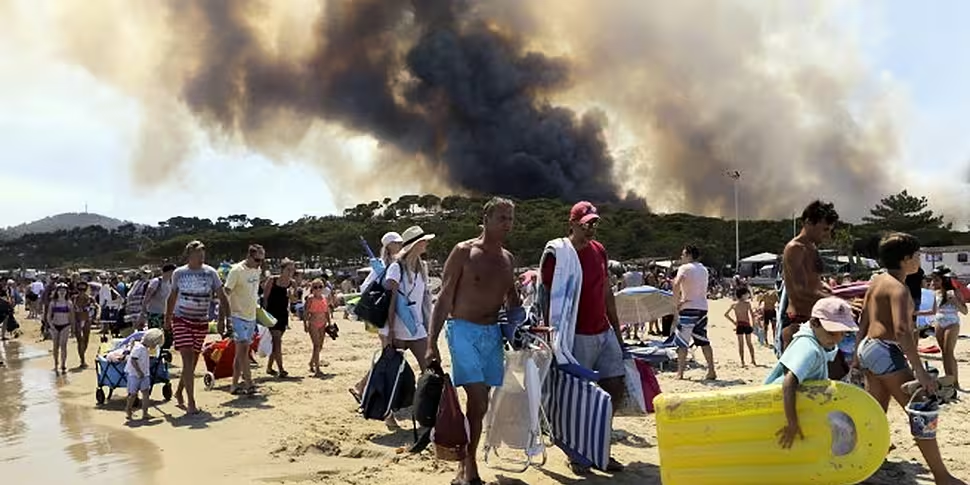Heatwaves, wildfires and floods could kill more than 150,000 Europeans every year by the end of the century, scientists say.
Experts predict a series of weather-related disasters if there is no reduction in greenhouse gas emissions.
Between 1981 and 2010, there were, on average, 3,000 people killed annually by weather-related events.
But this could soar to 152,000 annually between 2071 and 2100, according to a study in the Lancet Planetary Health journal.
Climate change is responsible for 90% of the increased risk, while population growth, migration and urbanisation make up the other 10%.
“Lucifer” heatwave
It comes as tourists are warned of a "dangerous" heatwave bringing temperatures of up to 47C across Europe.
The hot weather - which is travelling from Africa across the Mediterranean - has led 26 European cities to issue weather warnings to residents and tourists.
Temperatures as high as 47C (116.6F) have been registered in Spain, France, Greece, Italy, Croatia and other parts of Europe.
Eleven countries have declared "dangerous" weather conditions including Serbia, Hungary, Romania, Croatia and Poland.
Paris Climate Accord
Meanwhile, the US State Department has officially informed the United Nations that it will withdraw from the Paris Climate Agreement.
According to the written notification, the US will continue to participate in UN climate change meetings during the withdrawal process – with the door left open to re-engaging if the terms improve for America.
President Donald Trump announced his decision to withdraw from the deal in June, claiming the accord would have cost America trillions of dollars.
The earliest date for complete withdrawal from the agreement is 2020, around the time of the next US presidential election.
Extreme weather events
Dr Giovanni Forzieri, from the European Commission's Joint Research Centre in Italy and lead scientist on the Lancet study said: "Unless global warming is curbed as a matter of urgency and appropriate measures are taken, about 350 million Europeans could be exposed to harmful climate extremes on an annual basis by the end of the century."
The study looked at the likely impact of the most dangerous weather-related events in the 28 European Union countries.
These were heatwaves, cold snaps, wildfires, droughts, wind storms, as well as river and coastal floods.
At the beginning of the century, around one person in every 20 was exposed to these disasters.
By the end of the century, the researchers said this could increase to two out of every three people.
Heatwaves were set to be the most deadly weather event, accounting for 99% of future weather-related deaths.
The death toll is expected to rise from 2,700 at the start of the century to 151,500 by its end.
At-risk areas
Southern Europe is considered most at risk.
The study predicts this region could see 700 deaths per million people due to extreme weather events by the end of the century.
Northern countries, including the UK, appear a bit safer, with three weather-related deaths for every million people predicted.
The researchers got these numbers by looking at disaster records from 1981 to 2010 and estimating how vulnerable people in each country were to each of the seven types of weather-related events.
They combined this with climate change predictions and estimates of population trends and migration patterns.
Dr Forzieri said: "The substantial projected rise in risk of weather-related hazards to human beings due to global warming, population growth, and urbanisation highlights the need for stringent climate mitigation policies and adaptation and risk reduction measures to minimise the future effect of weather-related extremes on human lives."
Paul Wilkinson, professor of environmental epidemiology at the London School of Hygiene and Tropical Medicine, said: "While the analysis only considered extreme events, and assumed no reduction in human vulnerability over time from adaptation, it is yet another reminder of the exposures to extreme weather and possible human impacts that might occur if emissions of greenhouse gases continue unabated.
"It adds further weight to the powerful argument for accelerating mitigation actions to protect population health."









